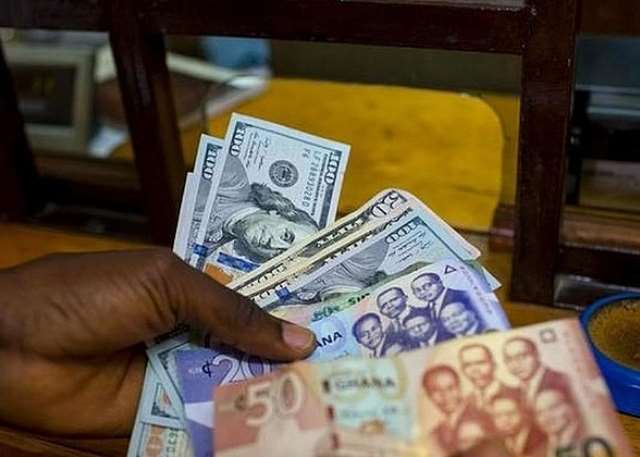The Ghanaian Cedi’s Performance Against Major Currencies: A Comprehensive Overview
The Ghanaian cedi’s performance against major international currencies, particularly the US dollar, has been a subject of constant observation and analysis. As of January 24, 2025, the cedi experienced a slight fluctuation against the dollar, with a 2-pesewa decrease in the buying rate to GHS15.08 and a 1-pesewa increase in the selling rate to GHS15.52. This dynamic reflects the ongoing interplay of market forces influencing the cedi’s valuation. At forex bureaus, the rates were slightly higher, with a buying rate of GHS15.70 and a selling rate of GHS16.10, highlighting the variations in currency exchange rates across different market segments. This data, sourced from Cedirates.com, a trusted platform for currency information, provides a snapshot of the cedi’s performance in the retail foreign exchange market.
The interbank market, where financial institutions exchange currencies, presents a different perspective. Here, the cedi traded at GHS15.11 for buying dollars and GHS15.13 for selling dollars, indicating a narrower spread between buying and selling rates compared to the forex bureaus. This difference underscores the role of market dynamics and competition in shaping exchange rates. In addition to the US dollar, the cedi’s performance against the British pound and the euro is also essential for understanding Ghana’s international trade and financial interactions. As of the reference date, the average exchange rates for the pound were GHS18.52 for buying and GHS19.19 for selling, while the euro traded at GHS15.58 for buying and GHS16.22 for selling. These rates reflect the relative strengths and weaknesses of these currencies against the cedi in the broader global currency market.
The Bank of Ghana’s interbank market provides another benchmark for currency exchange rates. On this platform, the pound was selling at GHS18.65, and the euro was trading at GHS15.74. These rates, set by the central bank, influence the overall direction of currency exchange in the country and play a critical role in maintaining stability in the foreign exchange market. The variations in exchange rates between the Bank of Ghana’s interbank market and other market segments reflect the interplay of monetary policy, market forces, and other economic factors.
Money transfer services, such as LemFi and Afriex, offer competitive rates for remittances from abroad. For dollar transfers from the US or the UK, LemFi offered GHS15.10 per dollar, while Afriex provided a slightly more favorable rate of GHS15.07. These rates underscore the importance of comparing different money transfer options for obtaining the most advantageous exchange rates. For pound transfers, LemFi offered a rate of GHS18.60, and Afriex provided a higher rate of GHS19.49. For euro transfers, Afriex offered GHS15.70 per euro, while LemFi provided GHS15.76. These variations in rates highlight the competitive landscape of international money transfer services and the need for consumers to compare options before making transactions.
Digital subscription payments for services like Netflix, Spotify, and Apple Music, using Visa and Mastercard, incurred exchange rates of GHS16.26 and GHS16.32 per US dollar, respectively. These rates are generally higher than those offered by money transfer services or forex bureaus, reflecting the fees and charges associated with international card transactions. Understanding these variations allows consumers to make informed decisions about payment methods for international services.
In conclusion, the Ghanaian cedi’s exchange rate against major currencies is a complex interplay of market dynamics, central bank policies, and competitive forces in the foreign exchange market. Understanding the variations in exchange rates across different market segments, including forex bureaus, interbank markets, money transfer services, and card payments, is crucial for individuals and businesses engaged in international transactions. Keeping track of these rates and using reliable sources like Cedirates.com enables informed decision-making and helps navigate the intricacies of the foreign exchange market. The constant fluctuations in exchange rates underscore the dynamic nature of the global financial landscape and the need for continuous monitoring and analysis.














